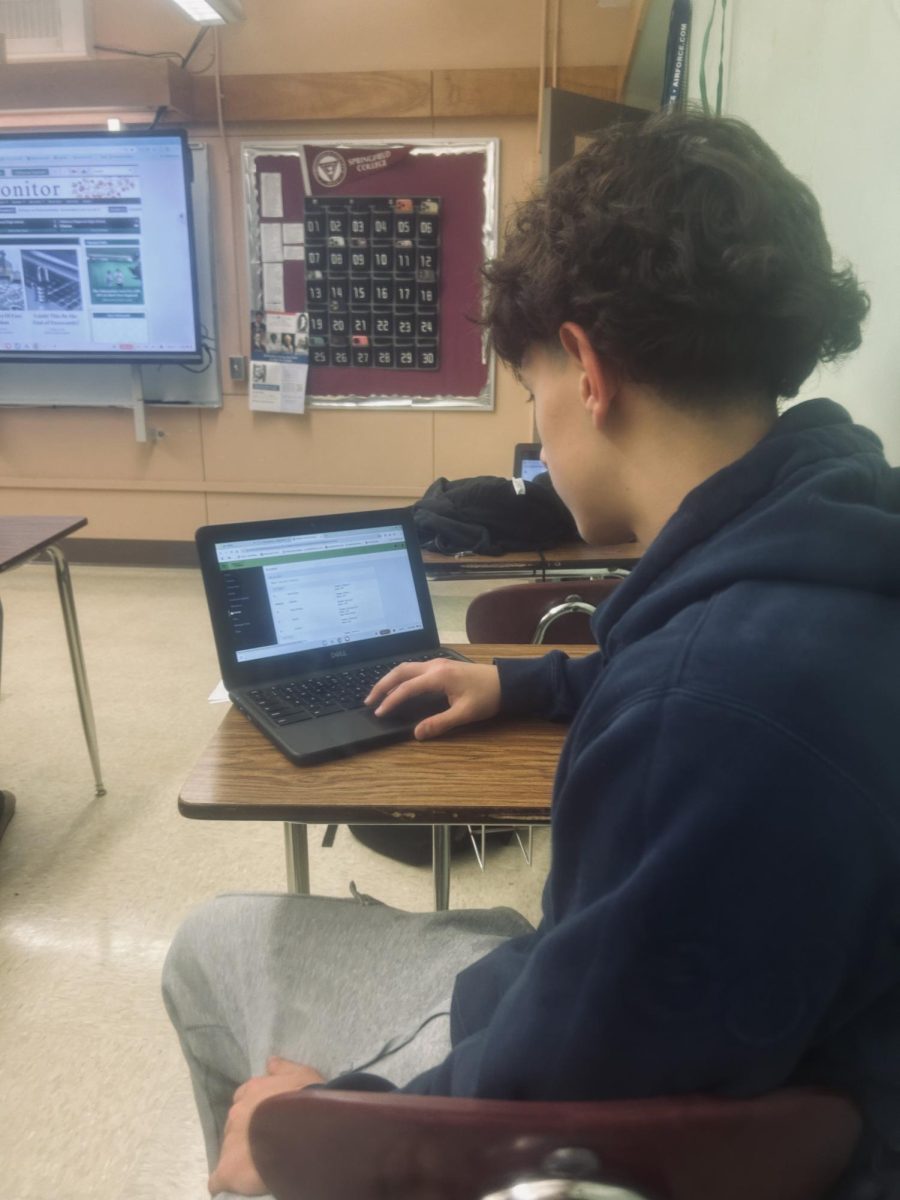Oakmont’s report cards have just been released as semester one has come to a close. But how do our peers feel about them? Report cards have changed in recent years since students now have 24/7 access to their grades through Plus Portals. Is there a surprise factor anymore? Is there any added pressure? What subjects are an issue for students when it comes to report cards? We have interviewed freshmen of Oakmont to see their thoughts and opinions on report cards this year.
Let’s see their perspective. Ninth grader Connor Catalfamo told us that he, “Doesn’t like 24/7 access to Plus Portals because parents can see grades and may get upset. It adds another level of pressure.” Catalfamo struggles with tests and quizzes for math but does well on classwork which can affect his grade poorly.
Another ninth grader that we have interviewed is Miranda Parkinson. Parkinson stated that, “Being able to see grades online daily helps to know if you need to reach out before the semester ends.” Math is a struggle for her as well when it comes to report cards. Some students prefer to have their grades right at their fingertips but for others it can stress them out.
According to an article “Con: Access to grades is more dangerous than it may see.” by Rowan McWhinnie, when students have constant access to their grades they become fixated on the numeric value of their grade rather than the information they are supposed to be obtaining. McWhinnie states that, “Continual access to grades shifts the emphasis from understanding a subject, to the amount of points you got and the final percentages. It creates an environment where students put the numerical value of their work before its true educational value and the meaning behind what they are being taught.” McWhinnie puts a new perspective on the negative outcome of online grades.
This article also mentions how parental pressure on their children can cause unnecessary stress to reach perfection on their report cards. McWhinnie also included how many teens strive for validation through their academics which can have a negative effect on these students and their mental health. McWhinnie continued to say, “Many teens are put under a ton of pressure from their parents to get the perfect grades and go to the “perfect” college. Having them able to see how their child is doing at any moment can heighten tension within a family.” This captures how family stakes can be raised and cause problems for a household if grades are a major concern.
Freshman Maddy LaMarca has said that report cards do worry and impact her. LaMarca noted, “Seeing report cards stresses me out knowing they can change from the last time I’ve checked them.” LaMarca likes to have 24/7 access to Plus Portals so she can be able to keep up with her grades. As well as the other students, math is a common struggle for LaMarca.
Although some Oakmont students are nervous over report cards some don’t really pay much mind to them. Expect when it comes to the frequent concern of parental pressure to excel. Freshman Juliette Gelinas doesn’t have thoughts on report cards, but when it comes to thinking about her parents’ expectations she does. According to Gelinas, “Report cards themselves don’t stress me out, but the expectations I’m supposed to meet does.” Gelinas believes that although some students don’t think about report cards as much as others, they still care about the requirements that are supposed to be met. Gelinas also added that she struggles with English and Math.
An article by Time Magazine, “How Parents’ Expectations Mess With Kids’ Grades” by Jeffery Kluger, suggests that parents’ expectations can lead to powerful impacts on the child’s performance. Having parents constantly checking their child’s grades or even reminding them about their grades can lead to the child being constantly anxious, stressed, and worried about what their parents might think if something goes wrong and their grades slip.
Even though the harsh expectations of guardians and teachers can be harmful, Kluger advised, “A child who is expected to underachieve, will often live down to that prediction. A child expected to thrive will not necessarily become an academic, athletic or social superstar, but will have a much better shot at it.” Even though parents’ standards can be stressful, Kluger implies that maybe this can help the child’s performance at school or in other social settings. Kluger believes that children who have high expectations will likely be more successful than those who don’t.
There is a fine line between pressuring and stressing a child to the point where their academic performance actually decreases and guiding them through the challenges of high school and their educational development. Many Oakmont freshmen deal with either the pressure of a guardian and high standards, strive through validation for themselves in their studies, or just don’t give report cards the time of day to worry about. Either way, report cards have changed drastically over the years and Oakmont students are doing their personal best to adapt.

















Juliette • Feb 7, 2024 at 6:42 pm
ABSOLUTELY FIRE ARTICLE